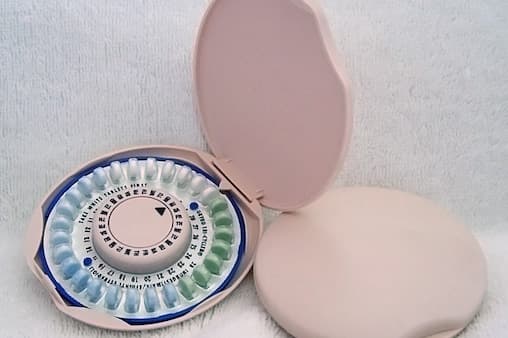Birth Control Pills and Breast Cancer

Question
Dr. Greene, I have a question about birth control pills. In an earlier article, you said that they could affect the risk of breast cancer in someone who started her period early. I've heard that there's no relationship between breast cancer and the pill. If there is a relationship between the two, should I be taking the pill? Please tell me more.
San Mateo, California
Dr. Greene's Answer
Thanks for the follow-up question. We cover a lot of ground at HouseCalls, and I am glad for the opportunity to clarify the points I have rushed by quickly.
Hormonal factors are very important in the development of breast cancer. The amount and duration of estrogen exposure seems to be the key issue. The younger a woman is when she has her first period, and the older she is when she stops having periods, the more likely she is to develop breast cancer. If the ovaries are removed early, for any reason, estrogen levels drop, and the risk of breast cancer drops greatly (other problems, of course, get worse).
Since your own hormones have an impact on the development of this disease, it makes sense that taking hormone pills, particularly estrogen containing pills, might also have an impact. Studies looking into this have had conflicting results. One of the reasons for this is that cancer takes a long time to develop. By the time a breast lump can be felt, the cancer has usually been there for about ten years. Birth control pills have changed quite a bit over the last decades. Earlier pills contained much more estrogen than those used today. Both the amount of estrogen and the proportion of estrogen to progesterone in the pills have changed. Any long term look at the effect of birth control pills is going to be influenced by the variety of different pill formulations that have been used.
Dr. Leslie Bernstein, et al., looked at many studies; some showing a risk from birth control pills, others showing no risk at all. They did a careful meta-analysis of all the data and concluded that the risk of breast cancer does increase with prolonged use of the pill. (Relationship of hormone use to cancer risk. Monograph of the National Cancer Institute 12:137 1992). At 120 months or ten years of use the relative risk was 1.38. These women were 1.38 times as likely to get breast cancer as those who had not used the pill.
This does not mean that you shouldn’t use the pill. There are clearly many benefits. Some studies even show that the pill may reduce the risk of ovarian cancer and endometrial cancer. There is even a synthetic progesterone formulation that might someday reduce the risk of breast cancer (Colletta, et al., The growth inhibition of human breast cancer cells by a novel synthetic progestin. Journal of Clinical Investigation 87:277 1991).
The primary concern is for women who start their period before age eleven. These women also begin having regular periods much faster. Someone who has gone through precocious puberty, and whose estrogen exposure is already going to be high, should be aware of the situation before deciding upon the pill. Prolonged use of estrogen containing pills is more likely to harm this subgroup of women.
The development of breast cancer (or any cancer for that matter) is multifactorial, meaning that it is most likely the result of inherited and environmental factors. Currently, there are 2 genes, BRCA-1 and BRCA-2, which have been linked to increased risk of breast and ovarian cancer. Women with the BRCA-1 gene may be at an even higher risk of breast cancer if they use the pill whereas those with the BRCA-2 gene have no additional risk from the pill. Using the pill, however, may decrease the risk of ovarian cancer in both of these group of women. (Am Fam Physician – April 15, 2007; 75(8); 1252-12580).
The long term effect of the current pill formulations are complex and will not be fully sorted out for years to come. Any decision to use birth control pills should be made in light of a woman’s total health, including her other risk factors and the impact of an unwanted pregnancy.


